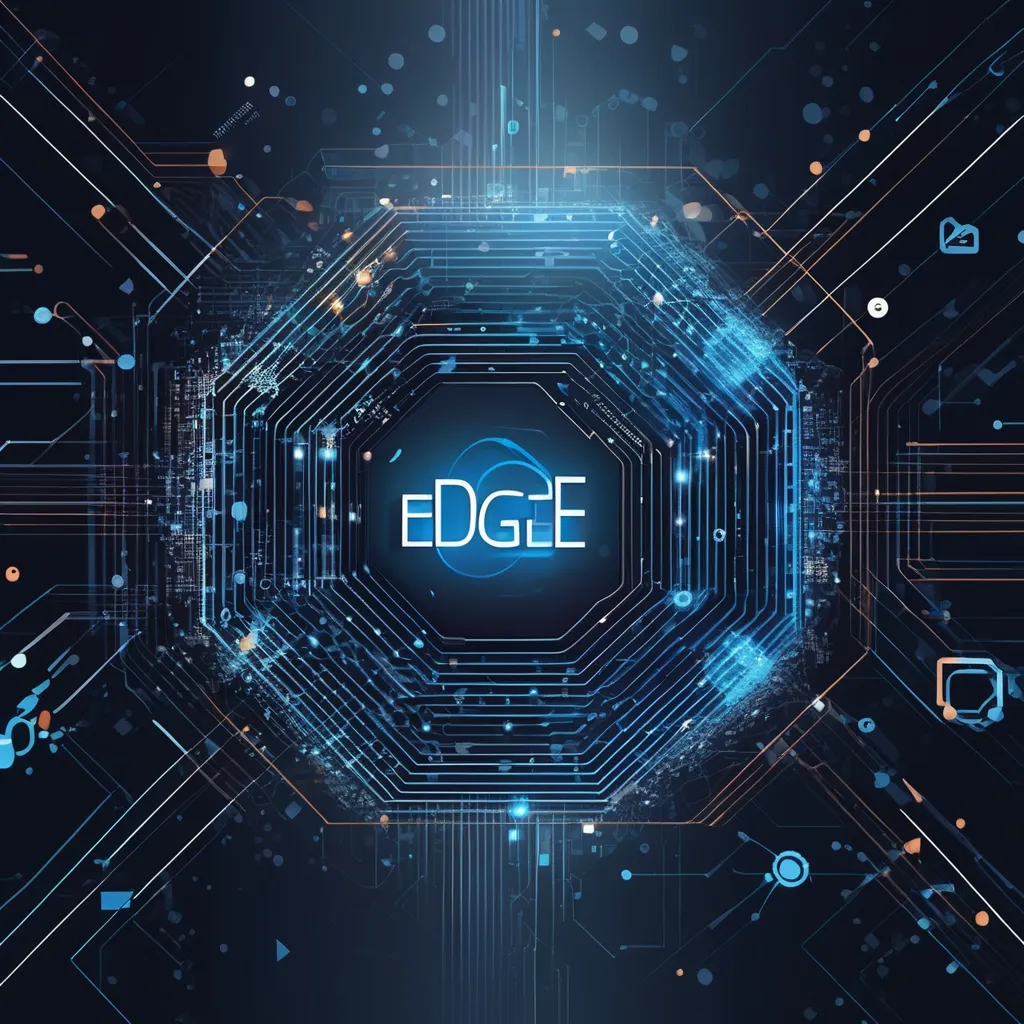Edge AI computing refers to the processing of AI algorithms locally on devices, rather than relying on centralized cloud servers. This paradigm shift reduces latency, enhances privacy, and enables real-time decision-making, making it vital for applications like autonomous vehicles, smart cities, and wearable technology. Recent advancements are driving the capabilities of Edge AI to unprecedented levels.
Key Advancements in Edge AI Computing
- Power-Efficient Processors
- Specialized processors, like ARM Cortex and NVIDIA Jetson, are optimized for low-power AI processing on edge devices.
- Example: Apple’s Neural Engine powers on-device tasks like Face ID and Siri in iPhones.
- Model Compression Techniques
- Techniques such as pruning, quantization, and knowledge distillation reduce the size of AI models without sacrificing performance, enabling deployment on resource-constrained devices.
- Example: TinyML focuses on deploying machine learning on microcontrollers.
- Federated Learning
- AI models are trained locally on edge devices, and updates are aggregated centrally, enhancing privacy and reducing bandwidth usage.
- Example: Google’s Gboard uses federated learning for personalized suggestions without sending user data to the cloud.
- Edge AI Frameworks
- Frameworks like TensorFlow Lite and PyTorch Mobile enable developers to optimize AI models for edge devices, simplifying deployment.
- 5G Integration
- The synergy between 5G and Edge AI ensures high-speed data transfer and low latency, supporting applications like AR/VR and real-time analytics.
Applications of Edge AI
- Autonomous Vehicles
- Edge AI enables real-time processing of sensor data for object detection, navigation, and decision-making.
- Example: Tesla’s Full Self-Driving (FSD) system uses edge AI for on-the-road autonomy.
- Smart Cities
- Traffic management systems analyze data from cameras and sensors locally, ensuring efficient and responsive urban operations.
- Healthcare
- Wearable devices like smartwatches use Edge AI to monitor health metrics and detect anomalies, such as irregular heart rates.
- Industrial IoT (IIoT)
- Edge AI powers predictive maintenance in factories by analyzing equipment data locally to prevent downtime.
- Retail
- AI-powered kiosks and checkout systems provide personalized recommendations and automate transactions without cloud dependency.
Benefits of Edge AI
- Reduced Latency
- Local processing eliminates the delay caused by cloud communication, ensuring faster response times.
- Enhanced Privacy
- Data is processed locally, reducing the risk of breaches and ensuring user privacy.
- Lower Bandwidth Usage
- Minimizing data transfer to the cloud reduces bandwidth costs and dependency.
- Offline Functionality
- Devices equipped with Edge AI can operate without an internet connection, ensuring reliability in remote areas.
Challenges and Limitations
- Hardware Constraints
- Limited processing power and memory on edge devices restrict the complexity of AI models that can be deployed.
- Energy Consumption
- Balancing performance with power efficiency remains a significant challenge.
- Security Concerns
- While Edge AI enhances privacy, local devices are more vulnerable to physical and cyber threats.
Future Outlook
- Advancements in TinyML
- Ultra-compact models will expand AI capabilities on microcontrollers, further democratizing Edge AI.
- AI and Quantum Edge
- Integrating quantum computing with edge devices could unlock unparalleled computational power.
- Improved Hardware
- Emerging technologies like neuromorphic computing and chiplet design will enhance the performance of edge devices.
- Edge AI for Metaverse
- Real-time processing on edge devices will play a critical role in creating immersive AR/VR experiences for the metaverse.
Edge AI is transforming industries by enabling localized, real-time intelligence. As hardware evolves and software frameworks mature, the potential applications of Edge AI will only expand, shaping a future of ubiquitous intelligent systems.
Would you like to explore specific frameworks, devices, or real-world Edge AI projects?

